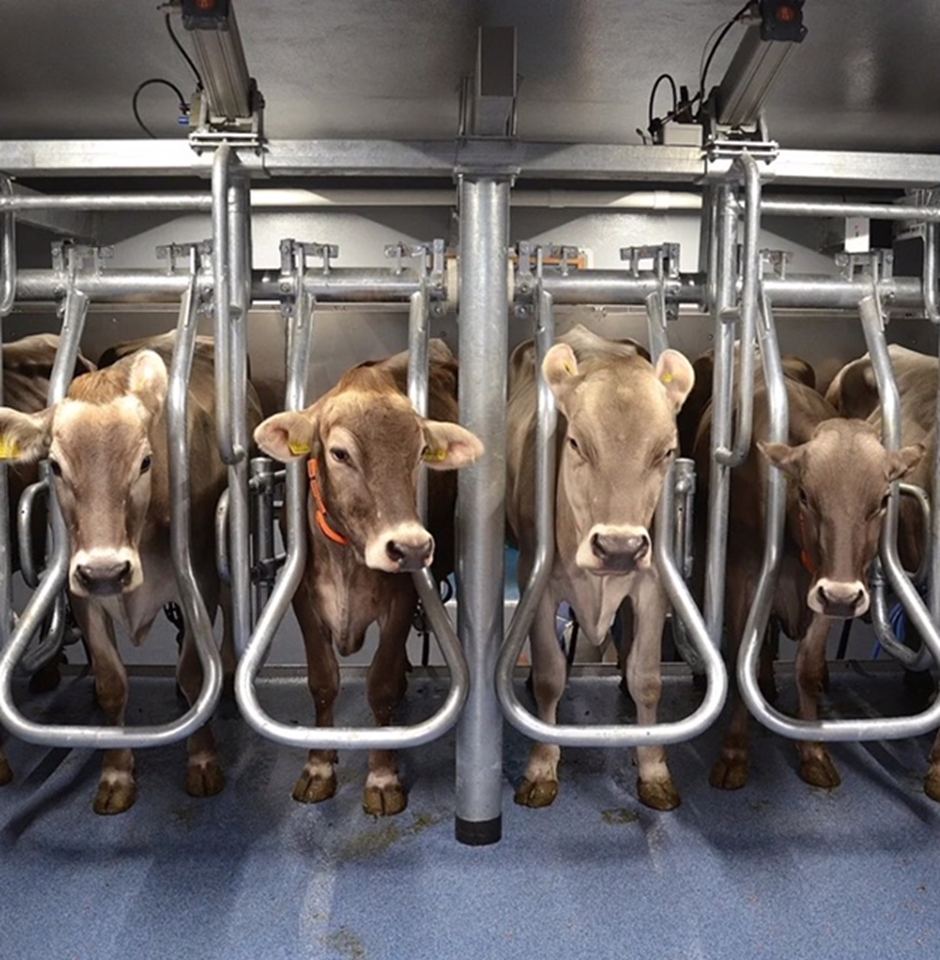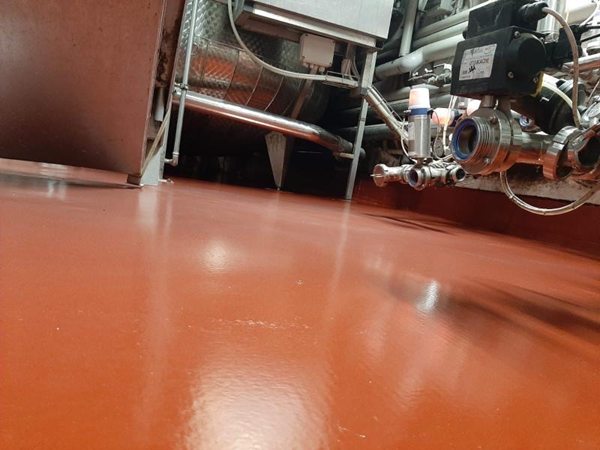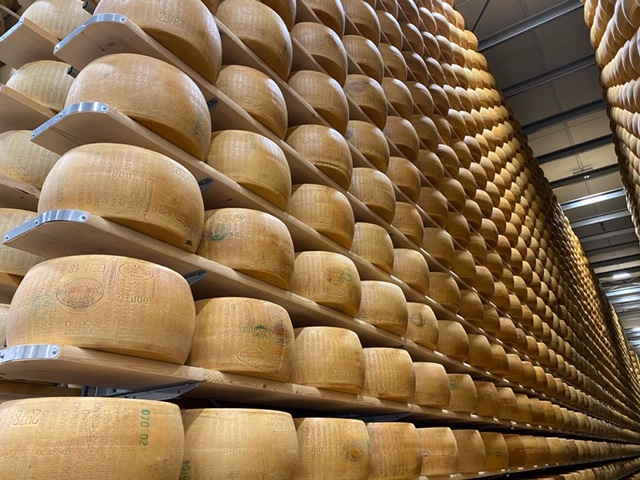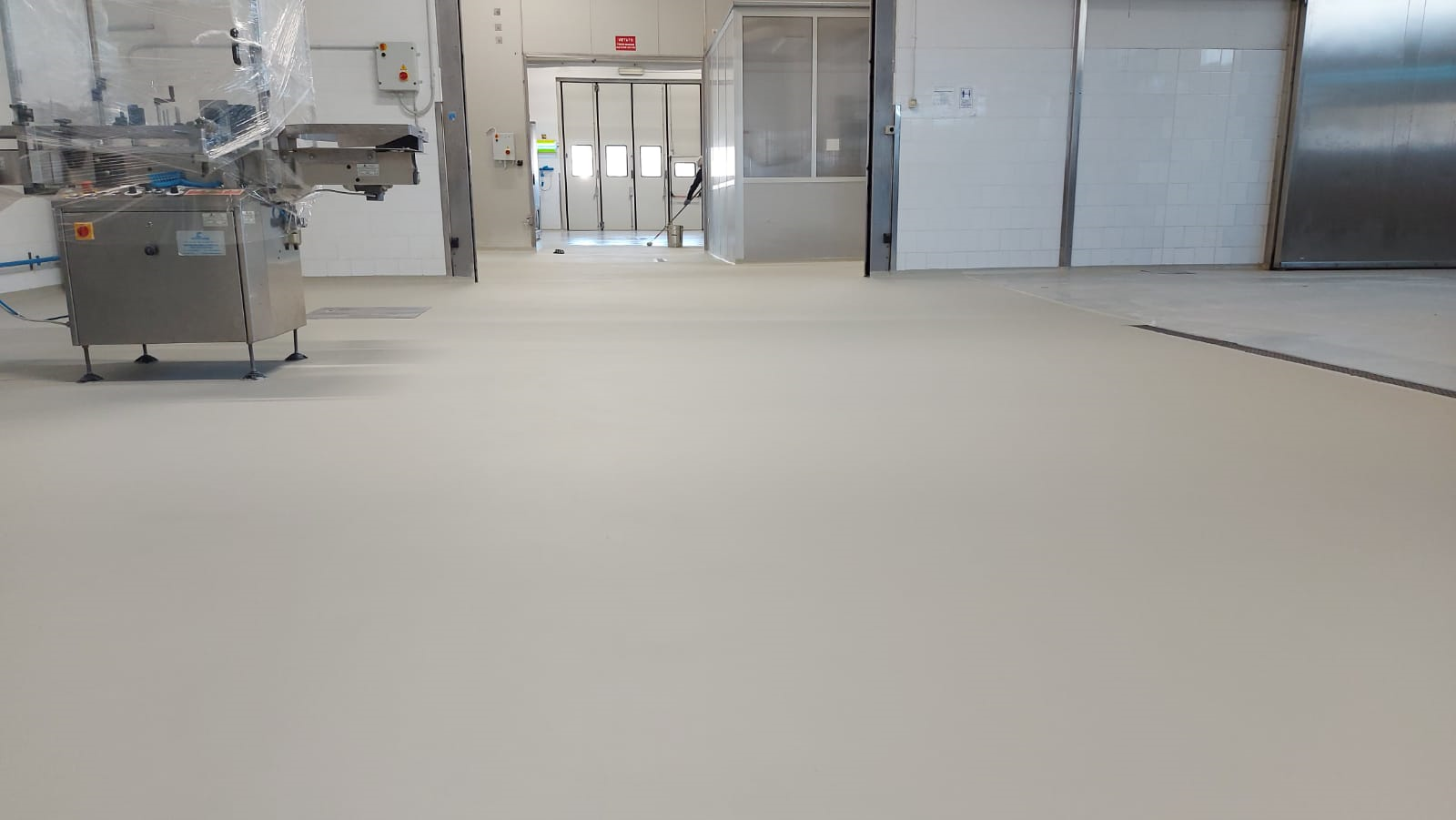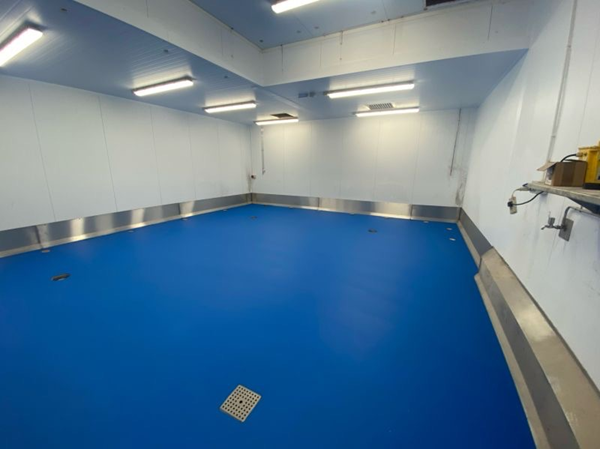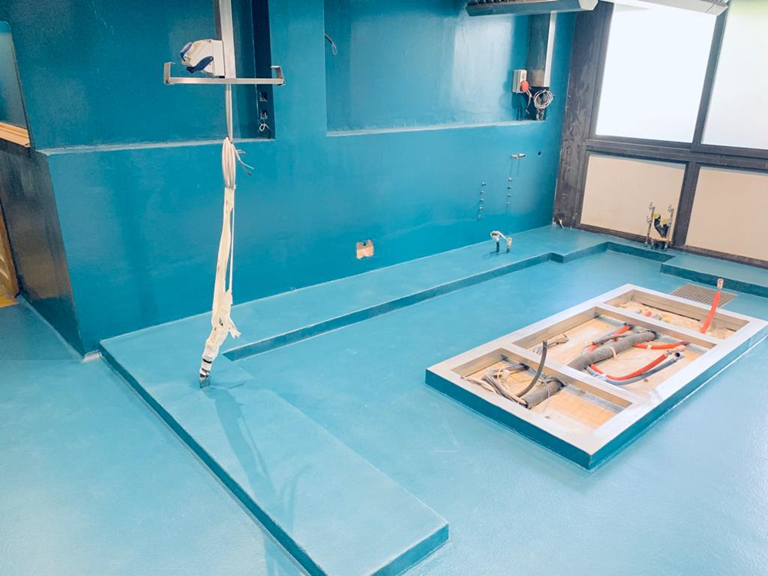Home > Food and beverage
Food and beverage
Our tried and tested range of food-safe, non-slip resin flooring systems are anti-microbial and comply with strict hygiene and safety standards.
From food manufacturing, distilleries, wineries and breweries, to dairies, fresh and frozen foods, cultivation farms, pet foods, meat and fish processing, bakeries and confectionaries, and pet food factories, we’ve got you covered.
Hygienic, clean and anti-microbial
To ensure cleanliness, it’s essential to have a monolithic floor structure which is impervious and easy to clean, maintain and secure, following HACCP.
Our floors can have coving and stainless-steel drainage incorporated.
An optional antimicrobial agent that reduces bacterial growth on the surface by up to 99.9% is available. Tested to ISO 22196, it inhibits the growth of bacterial and fungal organisms such as E-Coli, Aspergillus Niger, and Salmonella.
Hard wearing and resilient
Many food and drink manufacturing processes involve substances and by-products which have the potential to corrode and contaminate floors.
STC’s seamless resin floor systems for the food and beverage industry can withstand extreme conditions, whether it is chemical attack from acids and sugars, thermal exposure to reflective heat from ovens, physical impact, heavy machinery and equipment and a high volume of traffic.
Non-slip and safe
Often in these environments water, oils, and even fine powders such as flour or sugar, can cause floors to be slippery.
STC’s flooring systems for food and drink manufacturing areas are slip-resistant and safe for pedestrian traffic. Multiple grades of anti-slip can be integrated at the need of your safety program.
Non-taint and odourless
STC’s products are approved by Campden BRI as non-taint, odourless and suitable for the food and drink industry. (Campden BRI provides the food and drink industry with technical and advisory services, needed to ensure product safety and quality).
Withstands aggressive cleaning
STC’s durable resin floors can stand up to aggressive cleaning regimes that are often found in food and drink production facilities, such as hot water and steam cleaning, high pressure washing, scraping and the use of harsh chemicals.
Anti-static to reduce explosive dust risk
STC’s static dissipative systems can control spontaneous transfer of electrostatic charge in areas susceptible to risk of explosive dust.
According to the health and safety for explosible dusts in the food industry include: flour, custard powder, instant coffee, sugar, dried milk, potato and soup powder.
Whatever the resin flooring system you choose, you’ll have peace of mind that you’ve got support from STC.
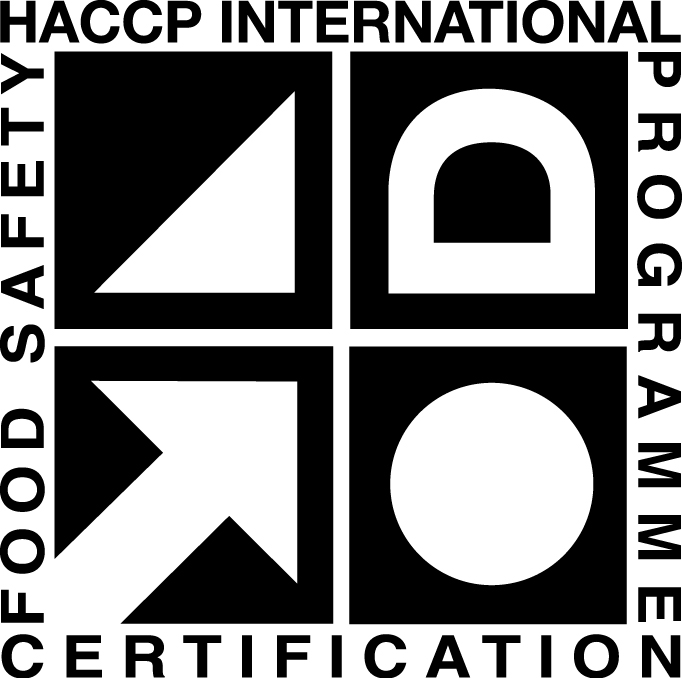

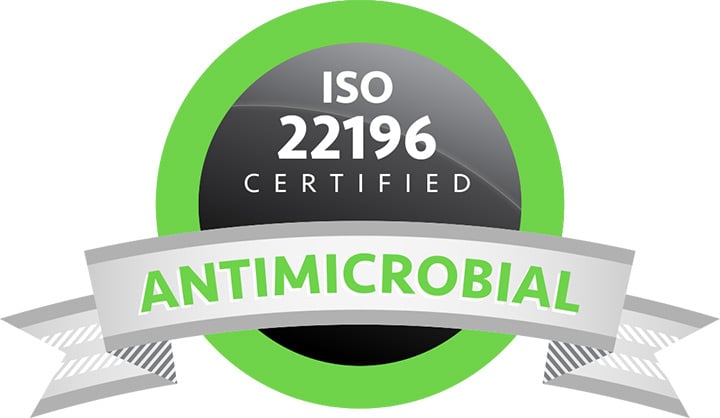
petfood
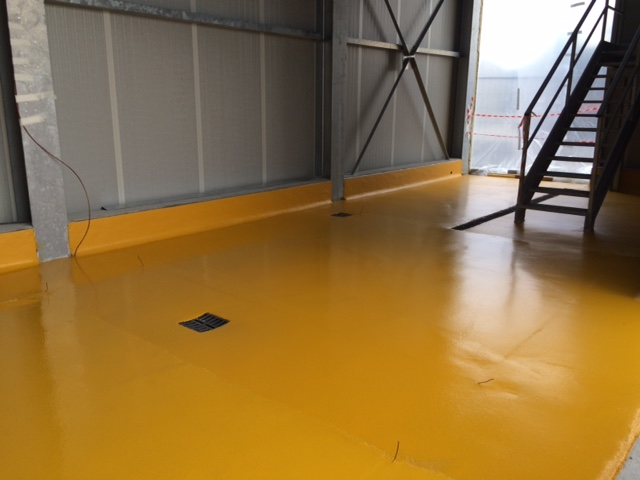
|
|


